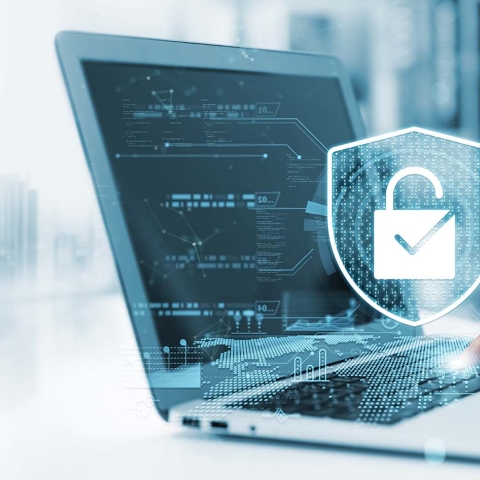Protect Your Business: Cybersecurity Tips for Small Business Owners

Investing in cybersecurity is vital for small businesses
It helps keep your data safe, builds customer trust, and ensures compliance. In addition, it can help prevent financial losses, protect your intellectual property, ensure continuity, and safeguard your reputation.
Here are some tips:
Protecting Confidential Data
Small businesses often manage sensitive information, such as customer data, financial records, and proprietary business details. Failing to adequately secure this data can lead to data breaches, resulting in financial setbacks, harm to your reputation, and legal consequences.
Building Customer Confidence
Customers trust businesses to protect their personal and financial data. A breach in data security can undermine customer loyalty, leading to negative publicity, a decline in business, and harm to your brand reputation. Investing in cybersecurity showcases your dedication to ensuring customer privacy and security.
Meeting Compliance Standards
Various industries are required to adhere to regulatory standards concerning cybersecurity, including the General Data Protection Regulation (GDPR), Health Insurance Portability and Accountability Act (HIPAA), and Payment Card Industry Data Security Standard (PCI DSS). Non-compliance with these regulations can result in substantial fines and penalties for your business.
Preventing Financial Losses
Cyber attacks can result in financial losses through fund theft, business interruptions, and expenses related to recovery and remediation. Small businesses may struggle to absorb these losses financially, making them especially susceptible to the impact of cyber incidents.
Protecting Intellectual Property
Small businesses often rely on intellectual property, such as patents, trademarks, and trade secrets, as valuable assets. Implementing cybersecurity measures helps safeguard intellectual property from theft, espionage, or unauthorized access by competitors or malicious entities.
Ensuring Business Continuity
Cyber attacks, such as ransomware or distributed denial-of-service (DDoS) attacks, can disrupt business operations and hinder productivity. By incorporating cybersecurity protocols, like regular data backups and incident response plans, you can ensure business continuity and resilience in the face of cyber threats.
Mitigating Reputational Harm
A cybersecurity breach can tarnish your business's reputation and credibility in the eyes of customers, partners, and stakeholders. Proactively addressing cybersecurity risks and demonstrating a commitment to security can help minimize reputational damage and uphold trust in your brand.
By prioritizing cybersecurity, small business owners can more effectively safeguard their assets, operations, and reputation in an increasingly digital world.
For more information on how to help protect your business, please visit FCC's Tips - Cybersecurity for Small Businesses.
The information presented in this document is for informational and educational purposes only. It is intended to assist individuals, farmers, and business owners in identifying common hazards/risks and considering proactive loss prevention or loss mitigation actions. For information related to specific loss hazards, please contact your insurance agent.

